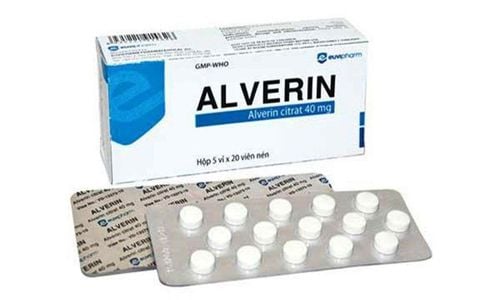This is an automatically translated article.
Post by Master, Doctor Mai Vien Phuong - Gastrointestinal Endoscopy - Department of Medical Examination & Internal Medicine - Vinmec Central Park International General Hospital.
People with irritable bowel syndrome with constipation often have lower serotonin levels, the muscles in their rectum are less responsive to serotonin, and they are more likely to pass hard or lumpy stools. People with irritable bowel syndrome and high serotonin levels may experience diarrhea and their rectum more reactive, passing loose or watery stools.
1. Irritable Bowel Syndrome and Serotonin
Serotonin is a neurotransmitter, chemical messenger that controls and stabilizes your mood and brain functions. However, Serotonin is also important for the functions of the digestive system.
Your gut produces about 95% of the serotonin in your body and changes in serotonin levels affect your gut as well as your brain.
Irritable bowel syndrome is a common condition that mainly affects the large intestine. The cause of the disease is not clearly understood. Irritable bowel symptoms include:
Stomach cramps and pain Bloating and distention Diarrhea Irritable bowel syndrome with constipation type Irritable bowel syndrome is characterized by flare-ups that can last for days, weekly, even monthly.
2. The brain-stomach connection The stomach is your digestive system, from the esophagus to the anus. Hundreds of millions of neurons move directly through it. It can perform certain tasks on its own, independent of the brain, such as coordinating reflexes and secreting enzymes, one of which is serotonin.
Nervous pathways connect your gut system and brain, they affect each other. For example, when you're nervous, you might have to go to the bathroom. Also, an irritable bowel syndrome flare-up can be caused by stress or anxiety from your brain.

How fast food moves through your system (intestinal peristalsis) Fluids, such as mucus, are secreted in your intestines Sensitivity with sensations like pain and fullness when eating Some nerve receptors are responsible for sending messages to your brain to signal feelings of nausea, bloating, and pain, while others affect how you stomach upset or bloating. Levels of each of these receptors vary from person to person. People with irritable bowel syndrome with constipation often have lower serotonin levels, the muscles in their rectum are less responsive to serotonin, and they are more likely to pass hard or lumpy stools.
People with irritable bowel syndrome and high levels of Serotonin may experience diarrhea and their rectum is more reactive, passing loose or watery stools.
4. Addressing Serotonin Problems Related to Irritable Bowel Syndrome Patients with irritable bowel syndrome have different symptoms, not all of which are bowel related.
Low levels of serotonin can make you more susceptible to fibromyalgia, a phenomenon that is highly sensitive to pain in muscles throughout the body. Altered levels of serotonin can also disrupt your sleep and have been linked to anxiety disorders and chronic depression. Selective serotonin reuptake inhibitors (SSRIs) are a class of drugs commonly used to treat depression. These drugs allow your nerve cells to use more serotonin, but antidepressants and anti-anxiety medications may not treat irritable bowel syndrome.
Research continues to look for drugs specifically designed to treat the serotonin changes seen in Irritable Bowel Syndrome without causing side effects. Talk to your doctor about serotonin-related therapies that can address your symptoms. However, don't forget that exercise and relaxation techniques like meditation can change serotonin levels enough to positively impact your symptoms.
In a nutshell, the nervous system of the brain and intestines is connected by neural pathways. Serotonin plays an important role in both, regulating basic function and mood. Serotonin can affect IBS symptoms, and changing serotonin levels through medication can help treat them.
Please dial HOTLINE for more information or register for an appointment HERE. Download MyVinmec app to make appointments faster and to manage your bookings easily.
References:Carpenter S. (2012). That gut feeling. apa.org/monitor/2012/09/gut-feeling.aspx Fayyaz M, et al. (2008). Serotonin receptor modulators in the treatment of irritable bowel syndrome. ncbi.nlm.nih.gov/pmc/articles/PMC2503665/ Furness JB, et al. (2014). The enteric nervous system and gastrointestinal innervation: Integrated local and central control. ncbi.nlm.nih.gov/pubmed/24997029 Garvin B, et al. (2008). The role of serotonin in irritable bowel syndrome: implications for management. ncbi.nlm.nih.gov/pubmed/18627647 Mayo Clinic Staff. (2020). Irritable bowel syndrome. mayoclinic.org/diseases-conditions/irritable-bowel-syndrome/symptoms-causes/syc-20360016 Sikander A, et al. (2009). Role of serotonin in gastrointestinal motility and irritable bowel syndrome. ncbi.nlm.nih.gov/pubmed/19361459














